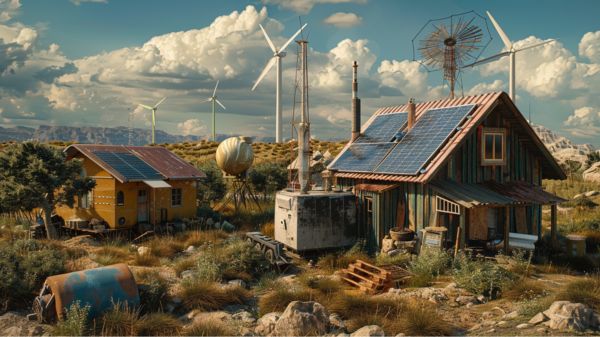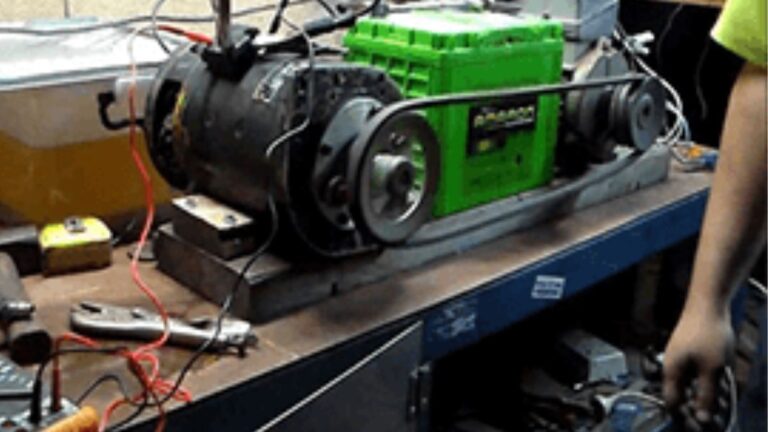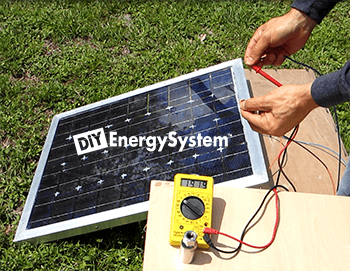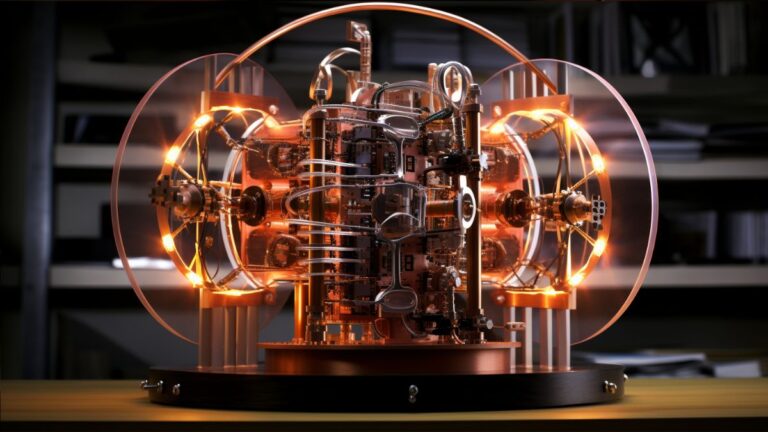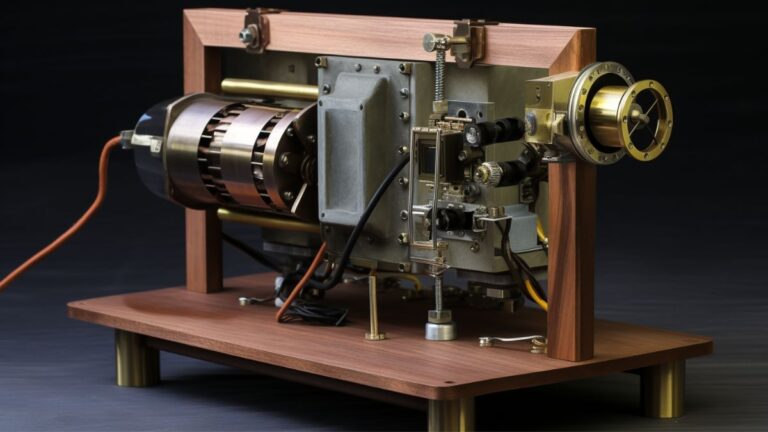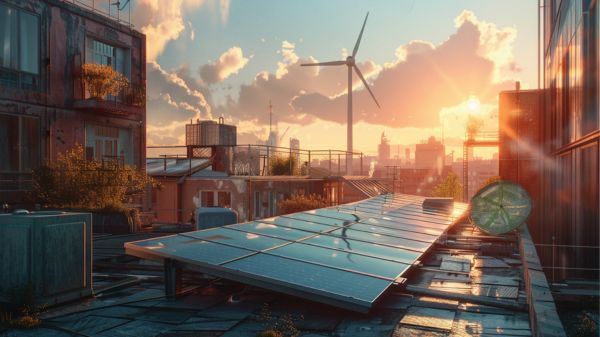Top 10 Free Energy Devices for Off-Grid Living
For off-grid living, consider utilizing top free energy devices like solar panels, wind turbines, and hydroelectric generators. Solar panels are efficient and sustainable with regular maintenance. Wind turbines convert wind energy into electricity with portable options available.
Hydroelectric generators tap into flowing water for constant power supply. Biomass generators use organic materials for energy conversion. Geothermal heat pumps offer high efficiency by transferring heat effectively.
Advanced concepts like Tesla coils, perpetual motion machines, zero point energy devices, magnetic generators, and quantum energy harvesters promise revolutionary outcomes in energy production. Explore these cutting-edge solutions for sustainable off-grid living.
Key Takeaways
- Solar panels are essential for off-grid living, providing efficient and sustainable energy solutions.
- Wind turbines convert wind energy into electricity, offering critical off-grid power generation.
- Hydroelectric generators tap into flowing water, providing constant power supply for off-grid living.
- Biomass generators convert organic materials into usable energy, offering a reliable off-grid solution.
- Geothermal heat pumps provide exceptional efficiency and significant energy savings for off-grid living.
Solar Panels
Solar panels are essential components for off-grid living, providing efficient and sustainable energy solutions for various power needs. When considering solar panels for off-grid use, proper maintenance is important to guarantee excellent performance and longevity. Here are some solar panel maintenance tips to keep in mind:
Regularly clean the solar panels to remove dirt, dust, and debris that can reduce efficiency. Use a soft cloth or sponge with mild soap and water to gently wipe the surface.
Inspect the panels for any signs of damage such as cracks or water leakage. Address any issues promptly to prevent further deterioration.
Check the mounting system to ensure it is secure and stable. Tighten any loose bolts or screws as needed.
For installation, follow a solar panel installation guide provided by the manufacturer. Proper installation is key to maximizing sun exposure and energy production.
Wind Turbines
Harnessing the power of wind, wind turbines play a critical role in generating electricity for off-grid living solutions. These devices convert the kinetic energy of the wind into electrical power through the rotation of their blades. When considering small scale wind turbine options, it’s important to assess factors such as maintenance requirements and efficiency to guarantee peak performance.
| Aspect | Description |
|---|---|
| Wind Turbine Maintenance | Regular maintenance, including blade inspection and lubrication, is essential for longevity and efficiency. |
| Efficiency | Choosing a turbine with high efficiency ratings ensures maximum power generation from available wind resources. |
| Small Scale Options | Portable turbines are suitable for temporary off-grid setups, while rooftop or pole-mounted options offer a more permanent solution. |
Hydroelectric Generators
Wind turbines have long been recognized for their ability to convert wind energy into electricity efficiently; similarly, hydroelectric generators tap into the power of flowing water to provide a reliable source of renewable energy for off-grid living solutions. Hydroelectric generators typically consist of a turbine that is connected to a generator. This setup enables the conversion of the kinetic energy of water into electrical energy.
These generators are known for their efficiency and reliability, especially in areas with access to flowing water sources like rivers or streams. They offer a constant power supply, making them suitable for off-grid homes and remote locations. The installation process and maintenance requirements for hydroelectric generators vary depending on the system’s size and the available water flow.
Proper upkeep is essential to guarantee top performance and longevity of the system, while the installation process requires careful consideration of factors like water flow rate, turbine placement, and electrical connections.
Biomass Generators
Biomass generators play a vital role in efficiently converting organic materials into usable energy, making them a sustainable and renewable energy source.
These generators offer a reliable off-grid energy solution for various applications including heating, electricity generation, and cooking.
Understanding the factors influencing the efficiency of biomass generators, such as the type of biomass fuel and technology used, is essential for maximizing performance and ensuring longevity.
Efficient Fuel Conversion
Efficiently converting organic materials such as wood, crop residues, and animal waste into usable energy, biomass generators play an essential role in sustainable off-grid living practices. These generators exhibit high fuel efficiency by harnessing the energy potential of biomass through processes like gasification and anaerobic digestion.
By utilizing renewable resources, biomass generators contribute to sustainable practices, reducing reliance on non-renewable energy sources. The conversion of biomass into energy helps minimize greenhouse gas emissions, making it an environmentally friendly energy solution.
Various types of biomass generators, including wood gasifiers, biogas digesters, and pellet stoves, cater to different energy needs in off-grid settings. Embracing biomass generators empowers individuals seeking energy liberation while promoting eco-conscious living.
Renewable Energy Source
Utilizing organic materials like wood, crop residues, and animal manure, biomass generators are integral components of off-grid living systems for harnessing renewable energy. These generators offer biofuel benefits and sustainability by converting biomass into heat or electricity efficiently.
By employing various biomass conversion methods, such as combustion, gasification, and anaerobic digestion, these systems can provide dependable power while reducing dependence on non-renewable resources.
The efficiency of biomass energy conversion not only guarantees a continuous power supply but also contributes to a greener energy mix for off-grid communities. Embracing biomass generators not only supports self-sufficiency but also aligns with environmentally conscious practices, making them a valuable asset for sustainable off-grid living.
Geothermal Heat Pumps
Geothermal heat pumps are renowned for their exceptional efficiency, boasting a coefficient of performance (COP) ranging from 3 to 6. This translates to a significant advantage when it comes to energy savings and operational costs for homeowners.
Understanding the cost considerations associated with geothermal systems is vital for making informed decisions regarding sustainable off-grid living solutions.
Efficiency of Geothermal Systems
Geothermal heat pumps leverage the Earth’s consistent temperature to efficiently regulate building temperatures, offering a highly energy-efficient solution for heating and cooling needs. These systems achieve remarkable energy efficiency levels, ranging from 300% to 600%, by transferring heat between the building and the ground.
The ground temperature plays an essential role in enhancing the heat transfer efficiency of geothermal systems. This efficiency translates to lower operating costs and a potential reduction in energy consumption of up to 70% compared to traditional HVAC systems.
Geothermal heat pumps have a long lifespan, with inside components lasting around 25 years and ground loops up to 50 years, making them a sustainable and environmentally friendly choice for off-grid living.
| Key Aspect | Description |
|---|---|
| Energy Efficiency | Achieves 300-600% efficiency by transferring heat between building and ground |
| Cost Savings | Reduces energy consumption by up to 70% compared to traditional systems |
| Lifespan | Components last up to 25 years indoors, ground loops up to 50 years |
| Environmental Impact | Minimizes greenhouse gas emissions and reduces dependence on fossil fuels |
| Ground Temperature | Essential for enhancing heat transfer efficiency in geothermal heat pumps |
Cost Considerations for Geothermal
When evaluating the economic viability of geothermal heat pumps for off-grid living, one key aspect to take into account is the initial installation costs, which can vary between $10,000 to $30,000, alongside their long-term energy-saving benefits and operational expenses.
Conducting a cost benefit analysis is essential to determine the payback period, typically ranging from 5 to 10 years. Despite the upfront investment, geothermal systems can reduce energy consumption by 25% to 50%, leading to significant cost savings over time.
While installation challenges may arise due to the need for drilling boreholes or trenches, the environmental benefits, lower operating costs, and reduced reliance on fossil fuels make geothermal heat pumps a compelling choice for sustainable off-grid living.
Tesla Coils
Harnessing the power of electromagnetic resonance, Tesla Coils are intricate electrical devices capable of generating high-voltage, high-frequency alternating current electricity. Invented by Nikola Tesla in the late 19th century, these devices have found applications in wireless power transmission and entertainment, enchanting audiences with their lightning-like discharges.
Here are some key points to ponder when delving into the world of Tesla Coils:
- Tesla Coils create mesmerizing performances, showcasing the beauty of high voltage phenomena.
- DIY Tesla Coil kits offer enthusiasts the opportunity to build their own electrical marvels.
- The principles of electromagnetic induction and resonance govern the operation of Tesla Coils.
- Hobbyists are drawn to Tesla Coils for their visually striking electrical arcs and sparks.
- Tesla Coils come in various sizes, from small desktop versions for indoor use to large outdoor installations for grand displays of electrical prowess.
For those seeking liberation from conventional energy sources, exploring the domain of Tesla Coils can be a fascinating journey into the world of high-voltage electricity.
Perpetual Motion Machines
Perpetual motion machines, while a persistent concept in the field of engineering and physics, remain an unattainable goal due to their fundamental contradiction with the established laws of thermodynamics.
These theoretical devices, capable of operating indefinitely without an external energy source, defy the first and second laws of thermodynamics, which govern energy conservation and entropy increase.
The concept of perpetual motion has been debunked by scientific principles, highlighting the impossibility of such machines. Throughout history, numerous inventors have attempted to create perpetual motion machines, only to face failure due to the insurmountable barriers posed by the laws of physics.
| Perpetual Motion Myths, Debunked | Perpetual Motion Scams, Warnings | Laws of Thermodynamics Violated |
|---|---|---|
| Machines operating indefinitely | Beware of fraudulent claims | First and Second Laws breached |
| Energy created from nothing | Caution against investing | Conservation of energy defied |
| Overcoming entropy increase | Watch out for pseudoscientific | Entropy cannot be reduced |
| Impossibility in reality | Stay informed and critical | Energy cannot be recycled |
Zero Point Energy Devices
Exploring beyond the limitations of perpetual motion machines, the world of zero point energy devices ventures into tapping into the energy of the quantum vacuum for potential revolutionary advancements in energy production. These devices represent a theoretical leap in energy generation, aiming to harness the abundant energy present in the quantum vacuum.
Here are some key points regarding zero point energy devices:
- Quantum energy extraction opens new doors towards limitless power possibilities.
- The theoretical implications of vacuum energy utilization challenge traditional energy production methods.
- Zero Point Energy Devices aim to extract energy from seemingly empty space, transforming our energy landscape.
- Scientists are on the brink of understanding how to practically apply zero point energy theories to real-world scenarios.
- The potential of revolutionizing energy production and enhancing sustainability through zero point energy devices is within reach, promising liberation from conventional energy constraints.
Magnetic Generators
Magnetic generators are capable of producing electrical energy by harnessing magnetic forces to create a continuous motion within the device. This motion is then converted into electricity through an energy conversion process.
The efficiency and output power of magnetic generators can vary depending on the quality of the device and the strength of the magnetic field generation.
Magnetic Field Generation
Utilizing the principles of magnetic field generation, magnetic generators offer a sustainable and efficient method of producing electricity for off-grid living applications. Magnetic field efficiency and design strategies play an important role in optimizing the performance of these generators.
Here are some key points to keep in mind:
- The magnetic field generated within the device is essential for continuous electricity production.
- Proper alignment and configuration of magnets enhance the overall efficiency of the generator.
- Understanding the dynamics of magnetic fields helps in improving the output power of the generator.
- Maintenance of the magnets and coils is important to guarantee long-term functionality.
- Implementing innovative magnetic field design strategies can lead to increased power generation capabilities.
Energy Conversion Process
The energy conversion process in magnetic generators involves the transformation of magnetic energy into electrical power through the principle of electromagnetic induction. Magnetic generators rely on the manipulation of magnetic fields to generate electricity efficiently.
As magnets move within the generator, they create a fluctuating magnetic field. This changing magnetic field induces an electric current in nearby coils, converting the magnetic energy into usable electrical power.
The process of electromagnetic induction guarantees that energy efficiency is maximized, making magnetic generators a sustainable and reliable source of electricity for off-grid living.
Output Power Efficiency
Enhancing the output power efficiency of magnetic generators involves optimizing the design and materials to maximize energy conversion. Factors such as the magnetic field strength play a significant role in determining the efficiency of these devices.
To achieve higher output power efficiency, consider the following:
- Utilize high-grade neodymium magnets to enhance magnetic field strength.
- Implement precision engineering to minimize energy losses during conversion.
- Regularly maintain and calibrate the generator for best performance.
- Explore innovative designs that maximize the utilization of magnetic forces.
- Conduct thorough research on the most efficient materials for magnetic generator construction.
Quantum Energy Harvesters
Harnessing quantum fluctuations, Quantum Energy Harvesters are innovative devices that extract power from vacuum fluctuations to provide sustainable energy solutions for off-grid living.
These devices leverage quantum energy storage capabilities and advanced energy harvesting techniques to tap into the virtually limitless reservoir of energy present in quantum mechanics.
By utilizing the concept of zero-point energy, Quantum Energy Harvesters demonstrate high quantum energy efficiency, making them a promising technology for the future of off-grid energy production.
With the ability to produce energy without relying on traditional fuel sources, Quantum Energy Harvesters offer a clean and renewable energy solution. Their design focuses on maximizing energy extraction from quantum fluctuations, ensuring a reliable source of power for off-grid living.
As advancements in quantum technology continue to evolve, Quantum Energy Harvesters hold the potential to revolutionize the way we generate and utilize energy, paving the way for a more sustainable and environmentally friendly future.
Frequently Asked Questions
What Is the Best Power Source for Off-Grid Living?
When considering the optimal power source for off-grid living, factors like solar panels and wind turbines play essential roles. Solar panels harness sunlight efficiently, while wind turbines utilize wind energy effectively, making them sustainable and reliable options for independent power generation.
How Can I Get Free Electricity to Run My House?
To power your house with free electricity, consider utilizing solar panels and wind turbines. Solar panels convert sunlight into electricity, while wind turbines harness wind energy. By combining these technologies, you can achieve sustainable off-grid living.
How Can I Power My House Without a Generator?
To power your house without a generator, consider integrating solar panels to harness sunlight and wind turbines to capture wind energy. By combining these renewable sources, you can establish a sustainable and reliable power supply for off-grid living.
What Is the Ultimate Off-Grid Generator?
The ultimate off-grid generator for renewable energy and self-sufficiency is a high-capacity power bank integrated with solar panels. It offers versatile charging options, practical features like wireless charging, and LCD screens for monitoring battery life, ensuring a seamless off-grid power experience.
Conclusion
To sum up, the top 10 free energy devices for off-grid living offer a range of sustainable options for generating power. From solar panels to quantum energy harvesters, these devices can provide reliable sources of energy without relying on traditional power grids.
By utilizing these technologies, individuals can reduce their carbon footprint and achieve greater independence from fossil fuels. It is essential to continue exploring and implementing these innovative solutions to promote a more sustainable future.
